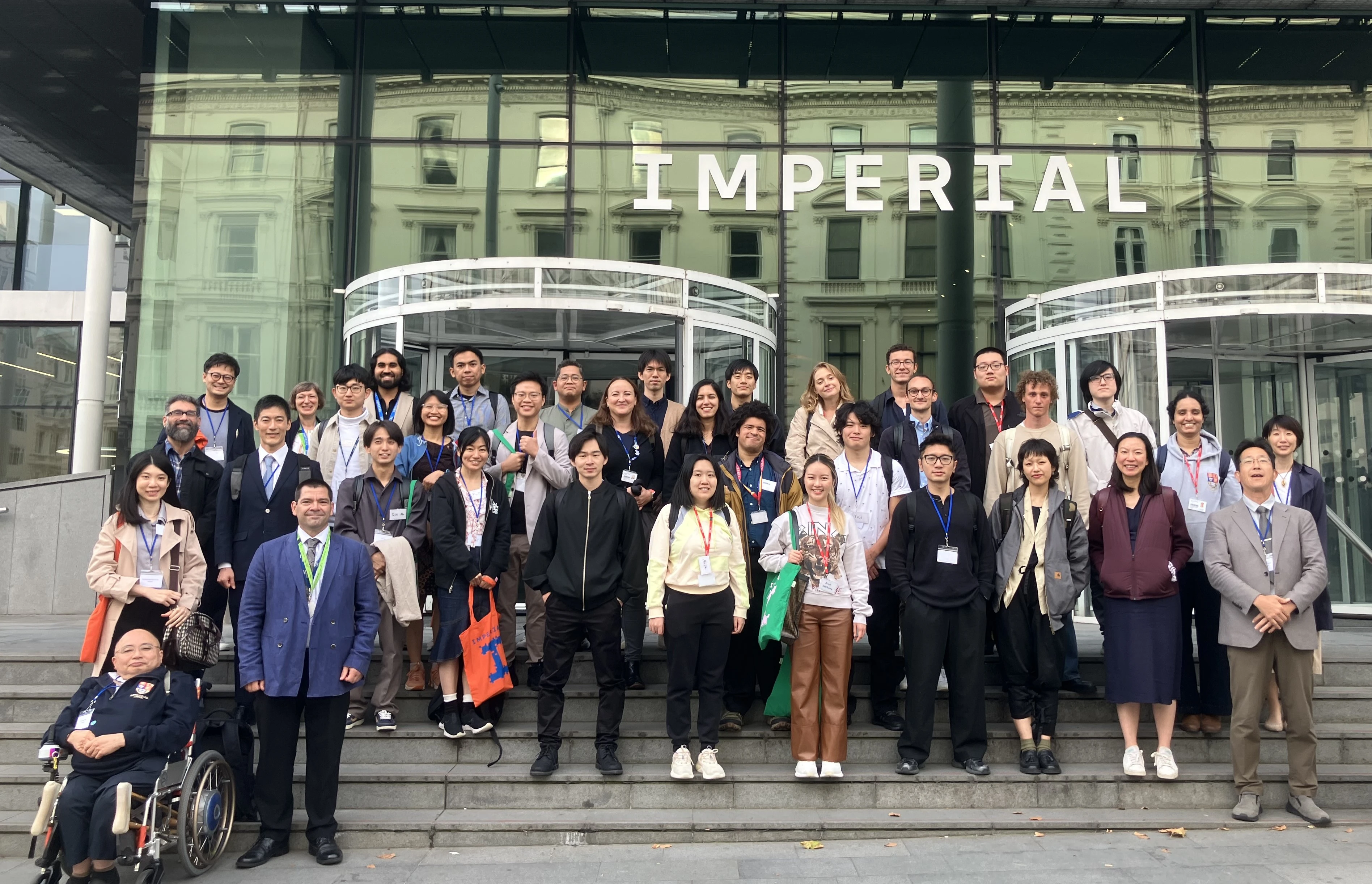
Imperial-Tokyo Tech* Global Fellows Programme 2024, the fourth doctoral student exchange program between Imperial College London (Imperial) and Tokyo Institute of Technology*, took place in London from September 9 to 13, 2024.
This programme is an international exchange training program jointly launched in 2018 by Tokyo Tech* and Imperial in the UK, designed to develop leadership skills and communication abilities in doctoral students while building a collaborative network between young researchers.
The second program was held in London in 2019, but subsequently had to be suspended for three years due to the COVID-19 pandemic. Following the third program, held in Japan in 2023, this year's program focused on one of the seventeen Sustainable Development Goals (SDGs) proposed by the United Nations: #3 "Good Health and Well-being." It was held at Imperial’s South Kensington and White City campuses in London.
A total of twenty-eight doctoral students, thirteen from Tokyo Tech* and fifteen from Imperial, gathered for this year’s program. Over the course of five days, participants deepened their understanding of good health and well-being through lectures on the topic, discussions with experts, and a walking tour tracing the historical trajectory of medical technology development in the UK. This program is centered around team activities and projects aiming to solve challenges related to good health and well-being. It was a fulfilling five-day program in which participants from different backgrounds discovered the joys and challenges of working together as a team.
Tokyo Tech prepared its part of the program — Global Camp 1 — through the doctoral program's Humanities and Social Science course with Professor Takehiro Inohara, Associate Professor Hironao Kaneko, and Associate Professor Yuto Koizumi (who all concurrently teach at the School of Environment and Society) – as well as Specially Appointed Associate Professor (Lecturer) Sasipa Boonyubol of the School of Environment and Society and staff members of the International Student Exchange Division**.
Day 1: Welcome and Introduction to Good Health and Well-being
Twenty-eight participating students and faculty members from Imperial and Tokyo Tech gathered at the Chemistry Building on Imperial’s South Kensington campus in London for the start of the program.
The participants, who were nervous at first, began to open up as they engaged in icebreaking activities, and the atmosphere at the venue quickly warmed up. The participants were then divided into five teams of five or six people, organized according to the diversity of their fields of expertise and nationalities. Over the next five days, they became friends who, together with their coaches from Imperial and Tokyo Tech, discussed ways to realize good health and well-being.
In the afternoon, students learned about "Good Health and Well-being," the theme of this year's program. They listened to lectures from five experts in the field.
One of the five lecturers, Assistant Professor Kazuyo Machiyama from the London School of Hygiene and Tropical Medicine, gave a lecture on health and well-being from the perspective of population studies, asking students questions such as: ‘What is the ideal number of children?’
Associate Professor Céline Mougenot, who was a member of the Department of Mechanical Engineering at Tokyo Tech* for seven years and currently teaches at the Dyson School of Design Engineering at Imperial, gave a lecture on product design that bridges cultures and is human-centered.
It was a valuable opportunity to listen to researchers from different fields and absorb multifaceted knowledge about the research being conducted in each field, as well as the challenges they face in their efforts to achieve good health and well-being.
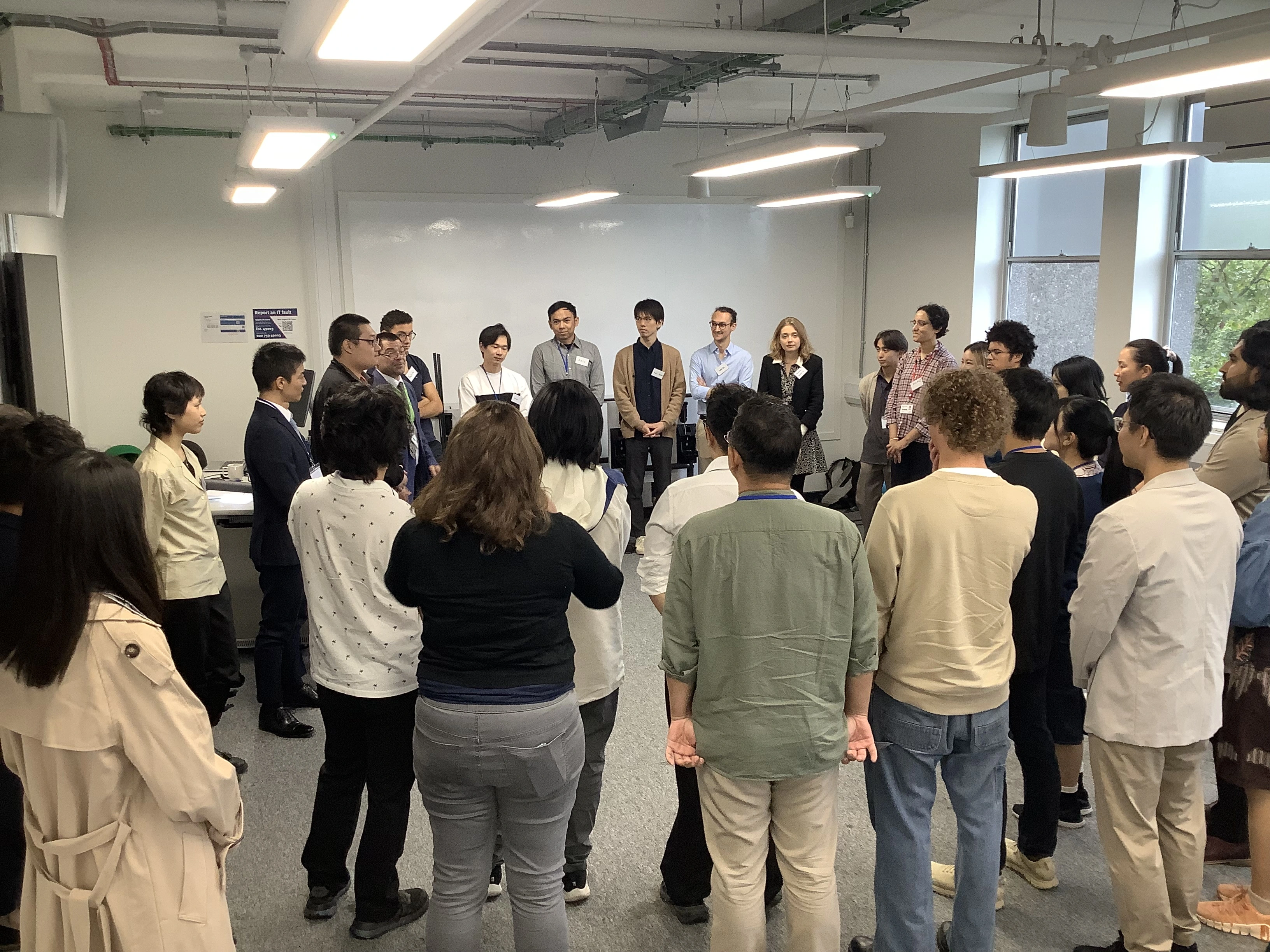
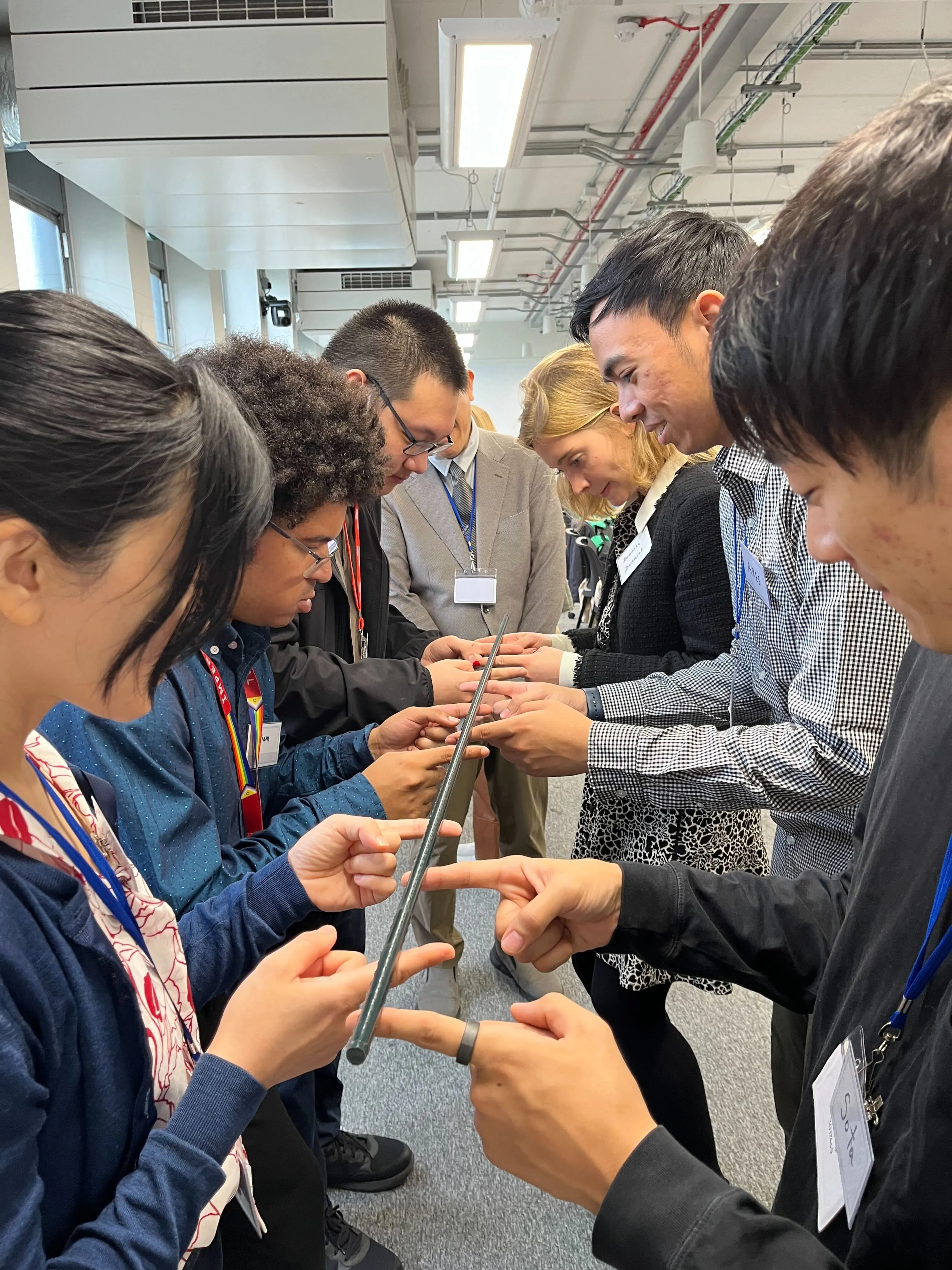
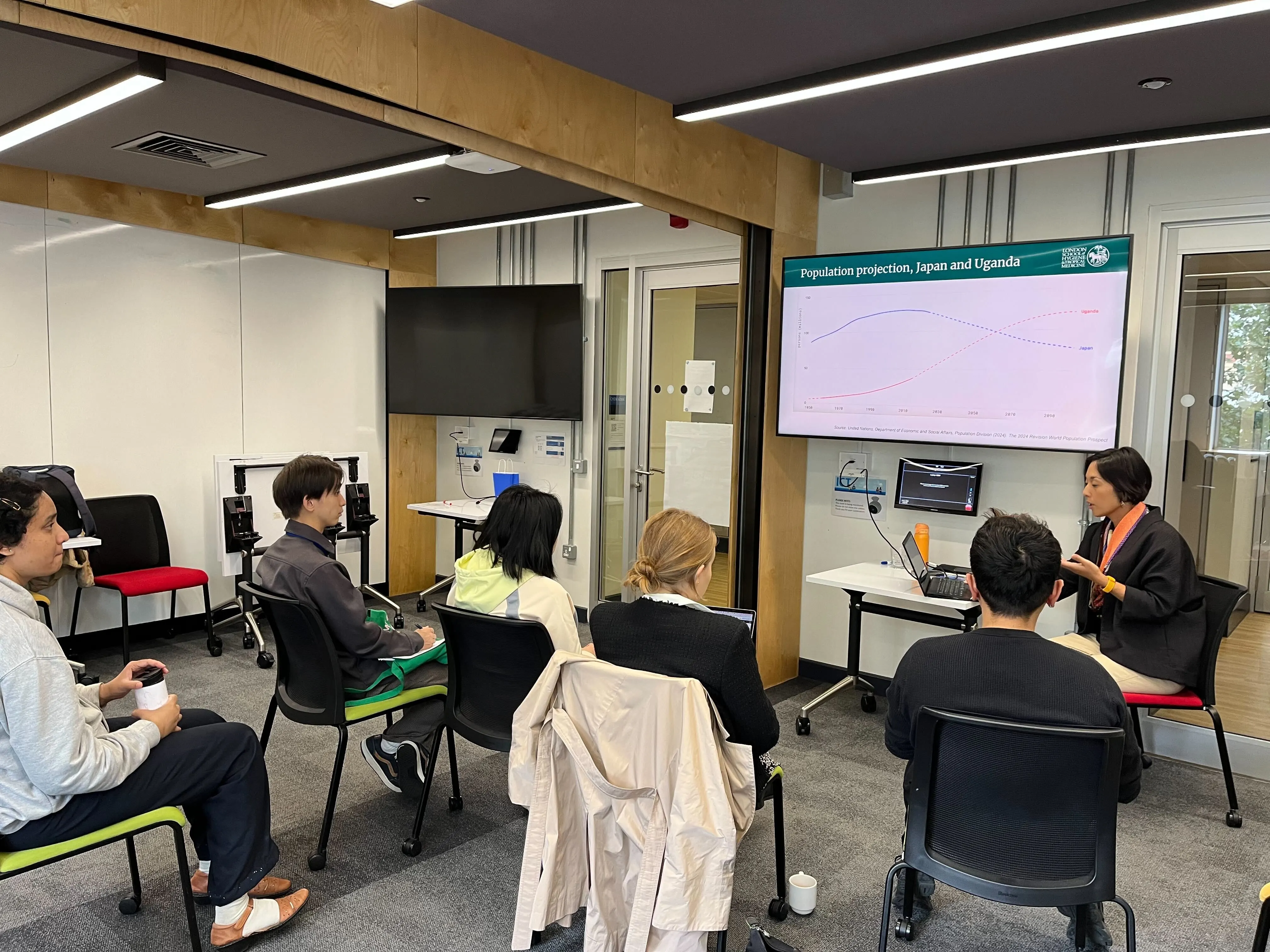
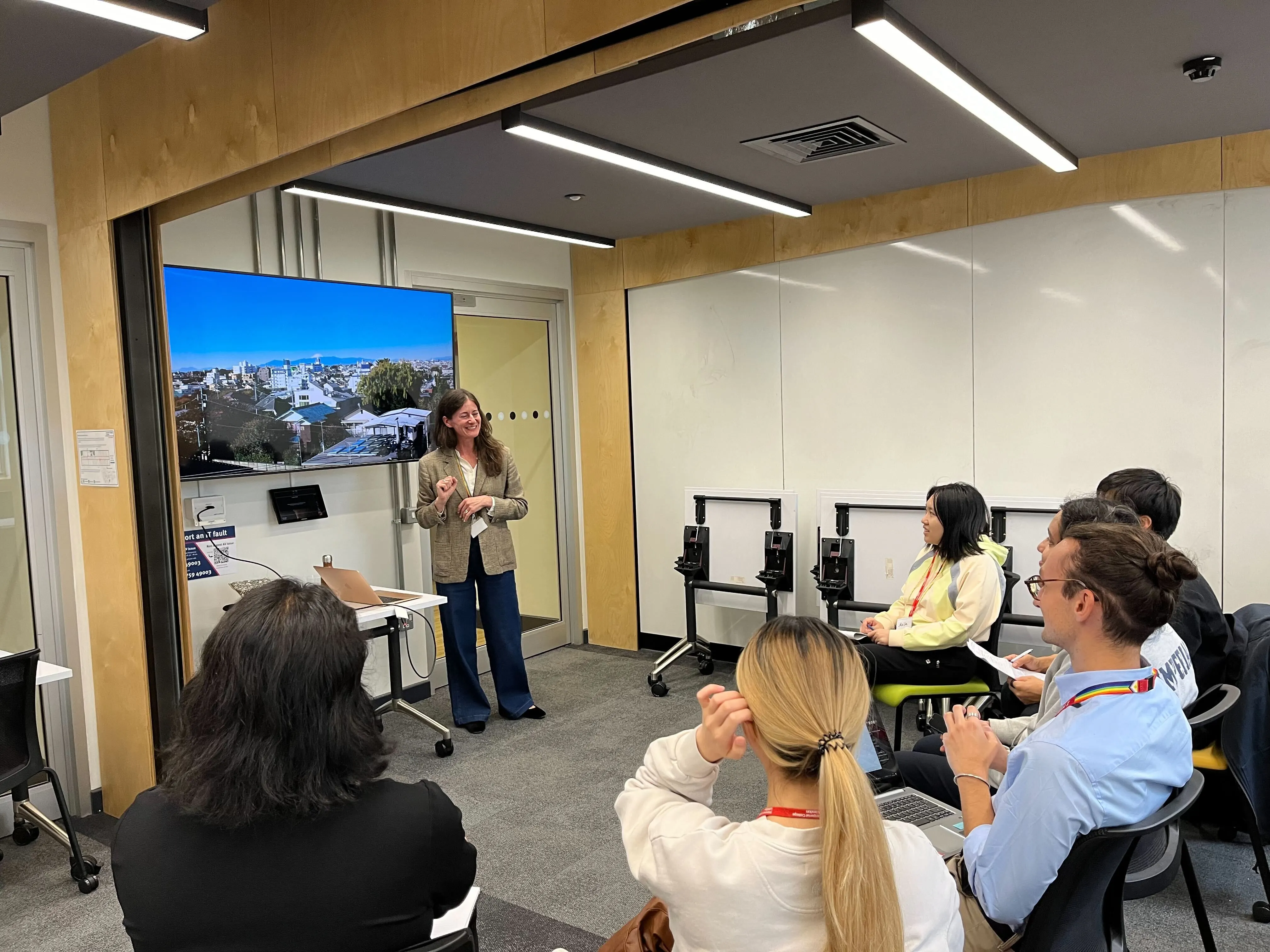
Day 2: Team Building
During the morning session, students played a game that tested their ability to
communicate and closely cooperate with their team members as they attempted to solve five
tasks. One task, an activity designed by Professor Takehiro Inohara, focused on properly understanding research ethics. The teams worked together on the often-puzzling tasks, and by the time they completed the exercises, their sense of unity as a team had increased dramatically.
Imperial’s South Kensington Campus, where this program was held, is located in an area known as “Albertopolis” due to its proximity to the Royal Albert Hall and the Victoria and Albert Museum, as well as the Natural History Museum and the Science Museum.
On the afternoon of the second day, each team visited one museum in Albertopolis and gave a summary presentation of the exhibit.
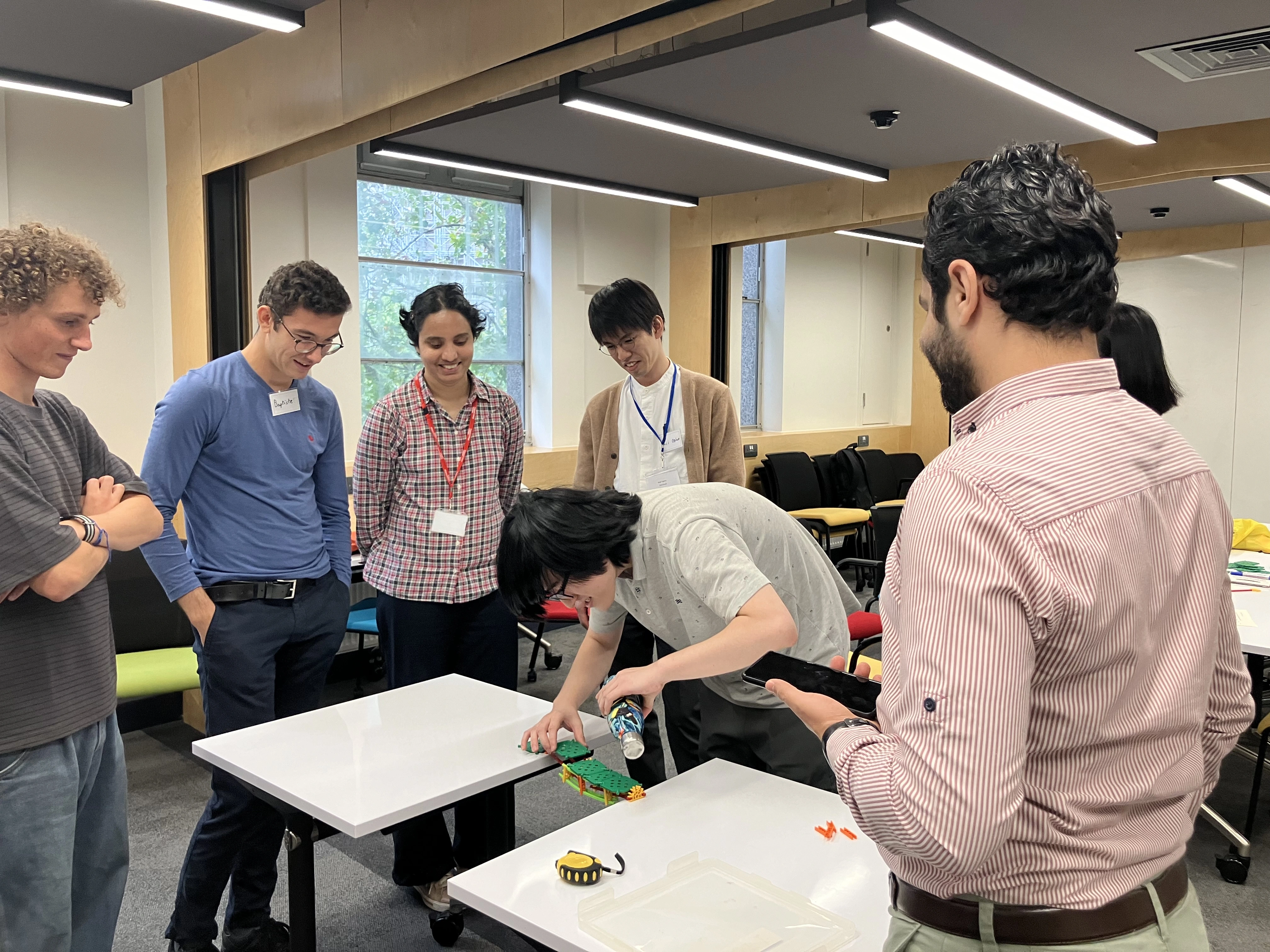
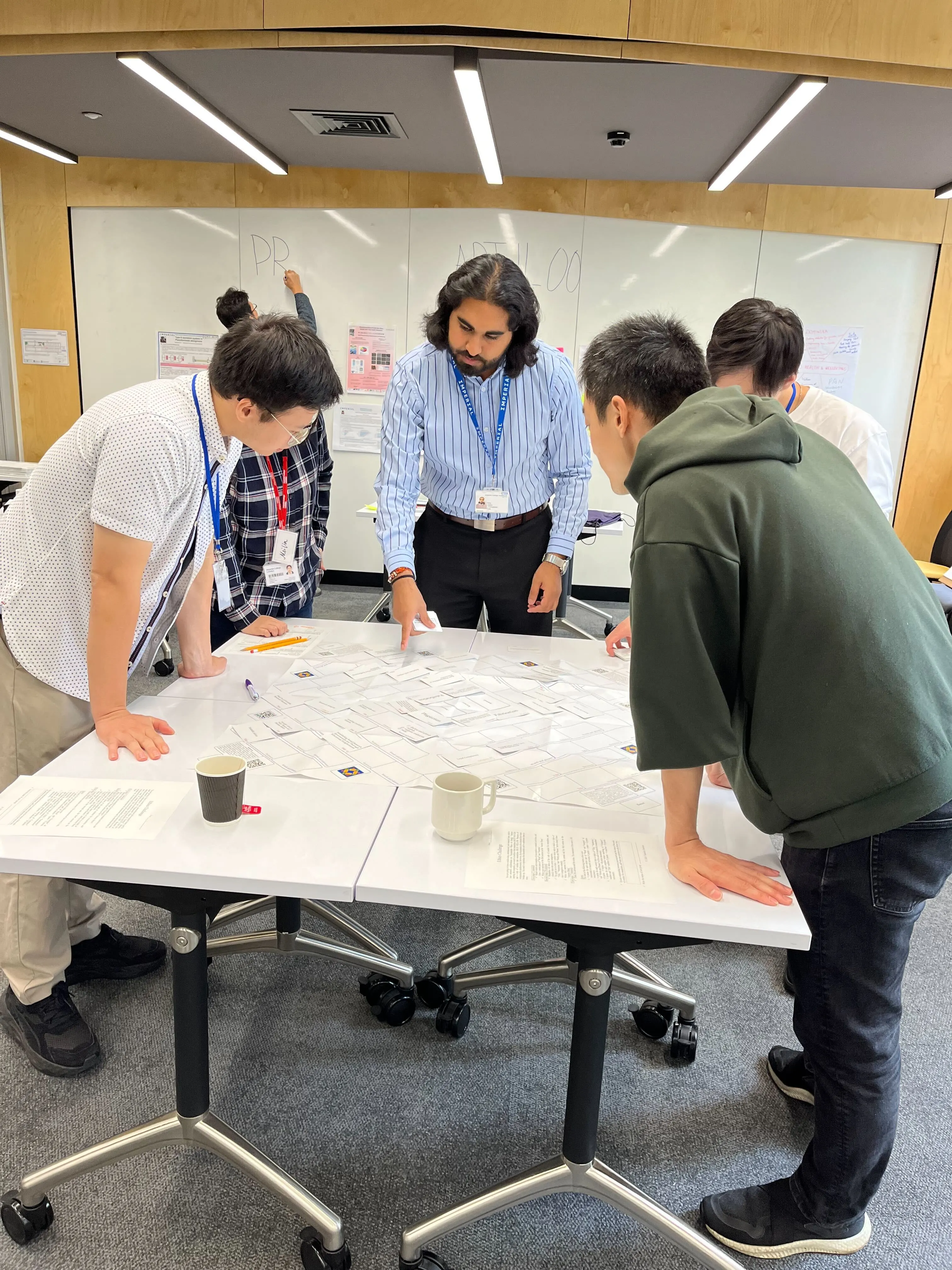
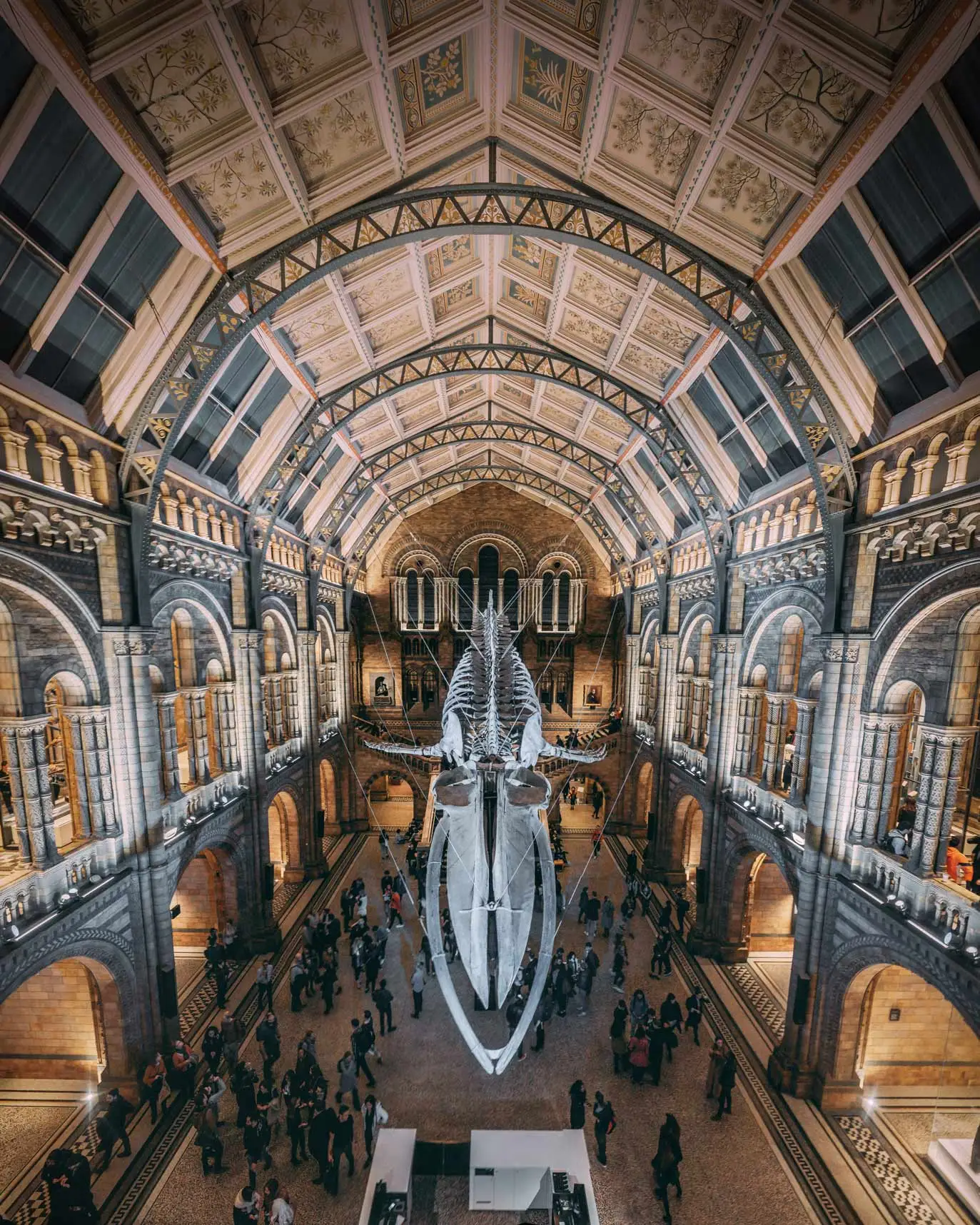
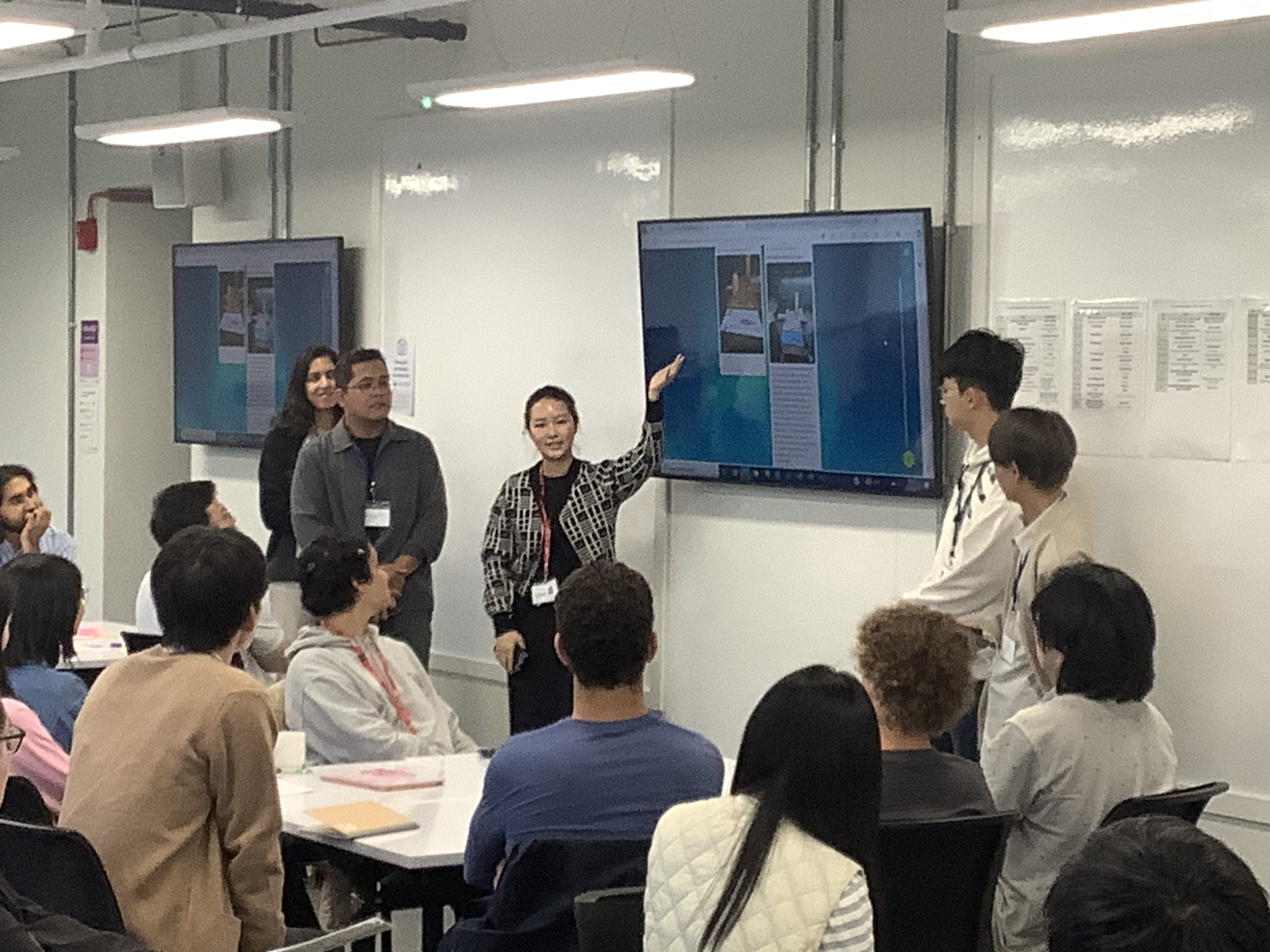
Day 3: Learn about startups
On the third day, the participants moved to Imperial’s White City Campus to learn about the commercialization of medical technology.
First, they attended a lecture on the adoption and support of medical technologies by Dr. Anne Roques, head of MedTech Accelerator, a program that supports the commercialization of medical technologies by Imperial’s researchers.
Next, Dr. Jumpei Kashiwakura, an Imperial alumnus who founded Neubond, a start-up company that supports physical rehabilitation at home, shared his experiences in preparing for the commercialization process and the pitfalls to avoid.
Participants then split back into their teams for a specific discussion on their Good Health and Well-being projects.
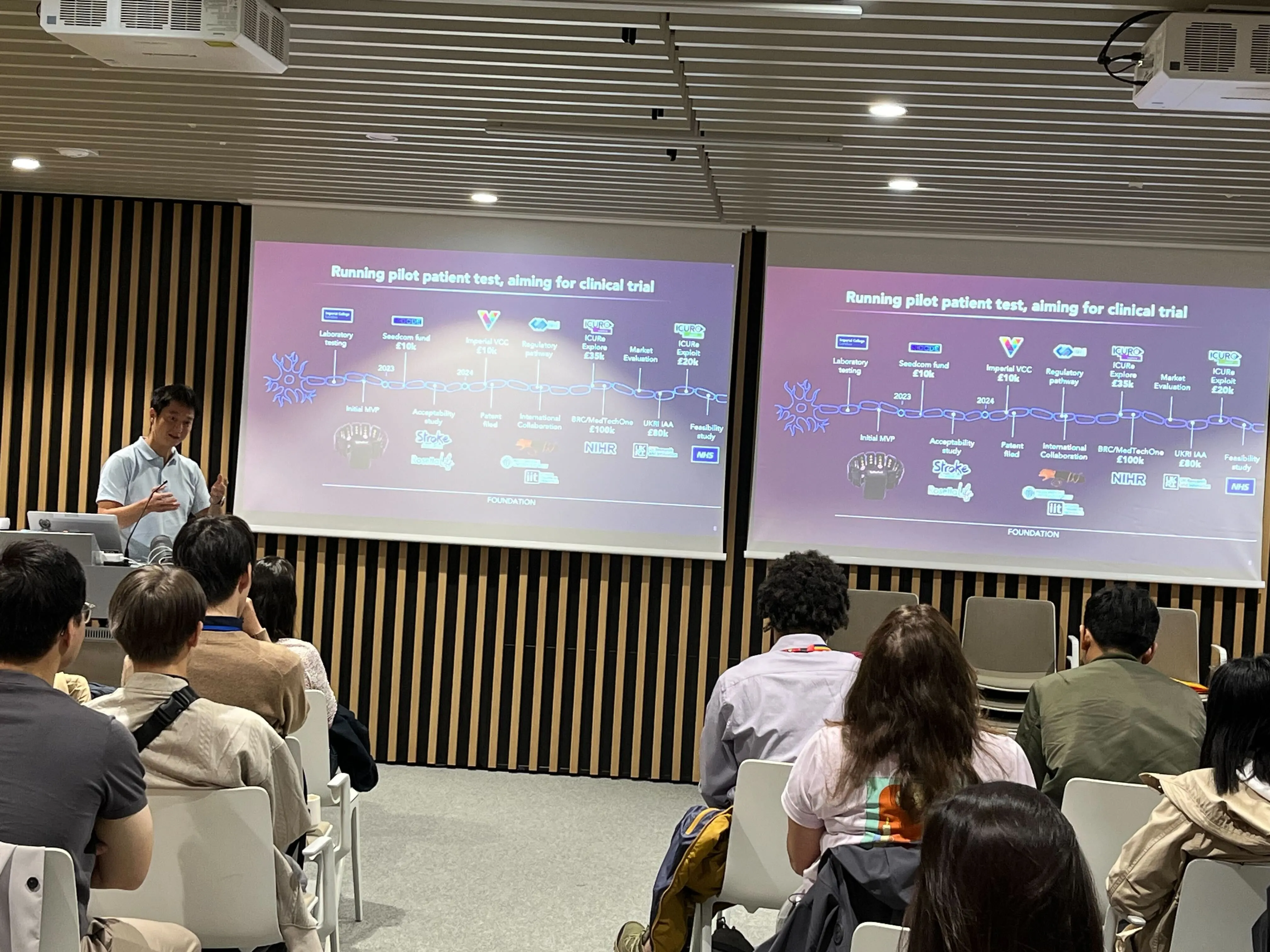
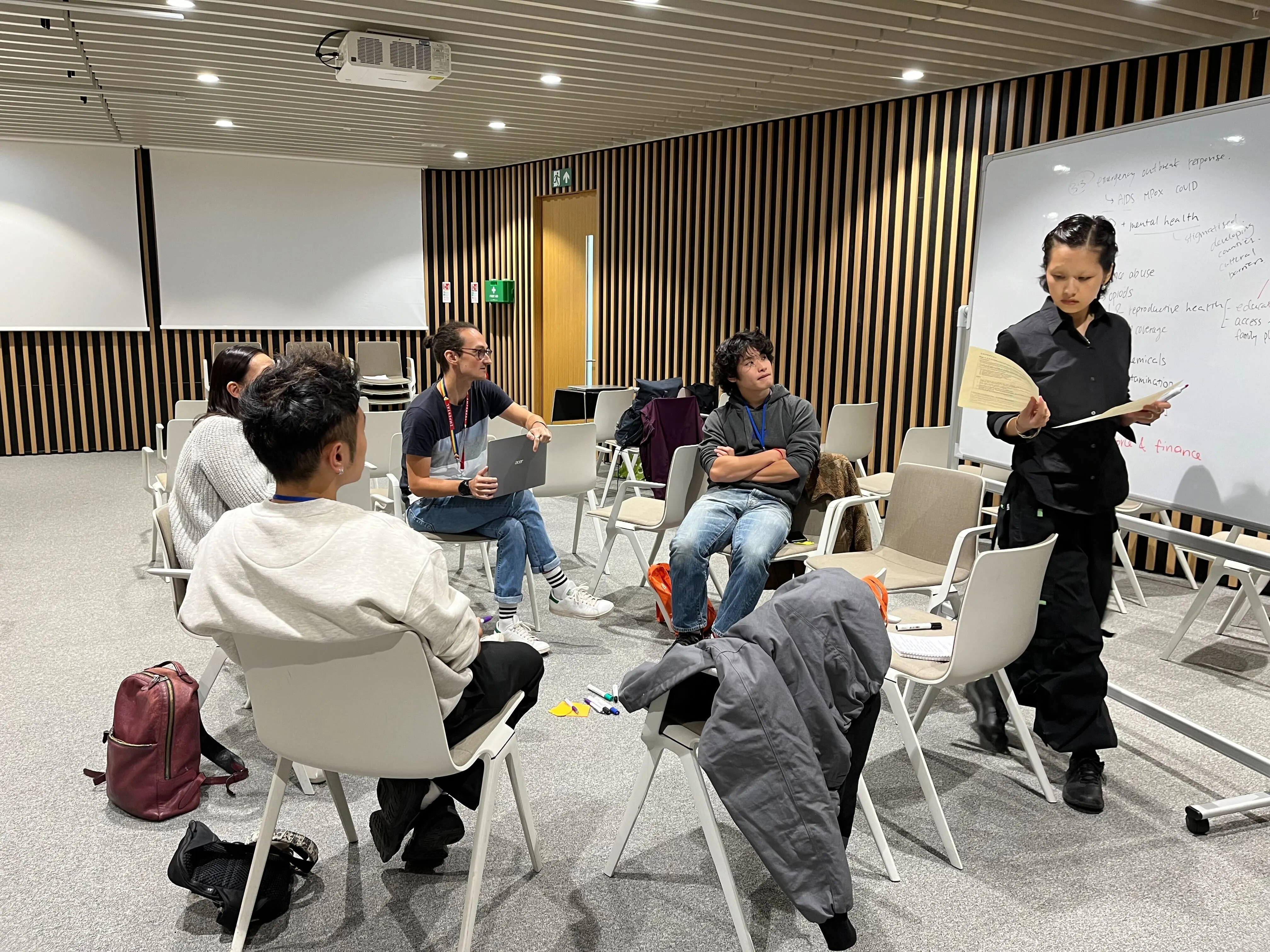
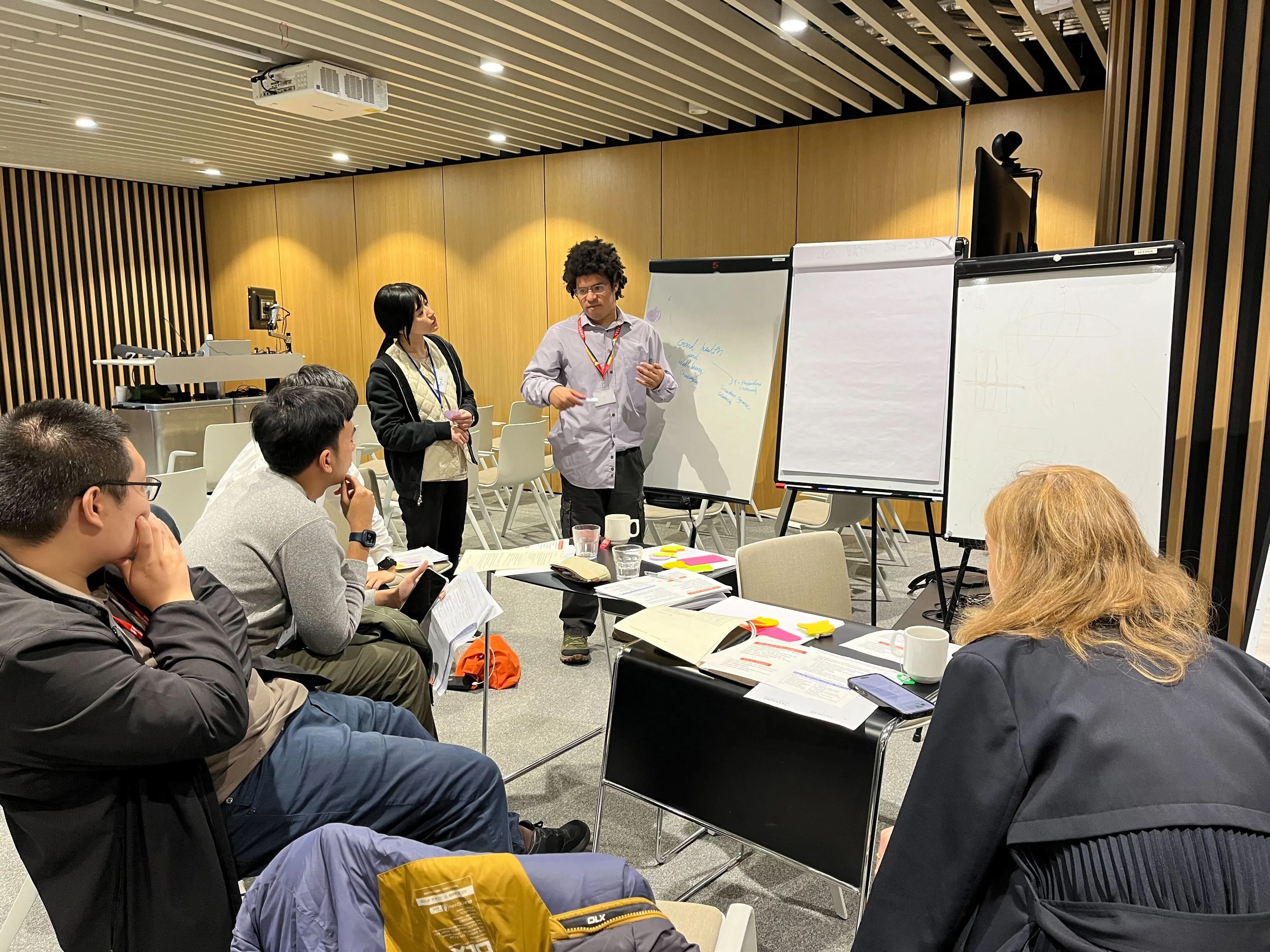
In the afternoon, with typical British weather — rain falling suddenly from blue skies —participants toured the South Bank area of London with a guide, tracing the historical footsteps of British medicine and healthcare’s development.
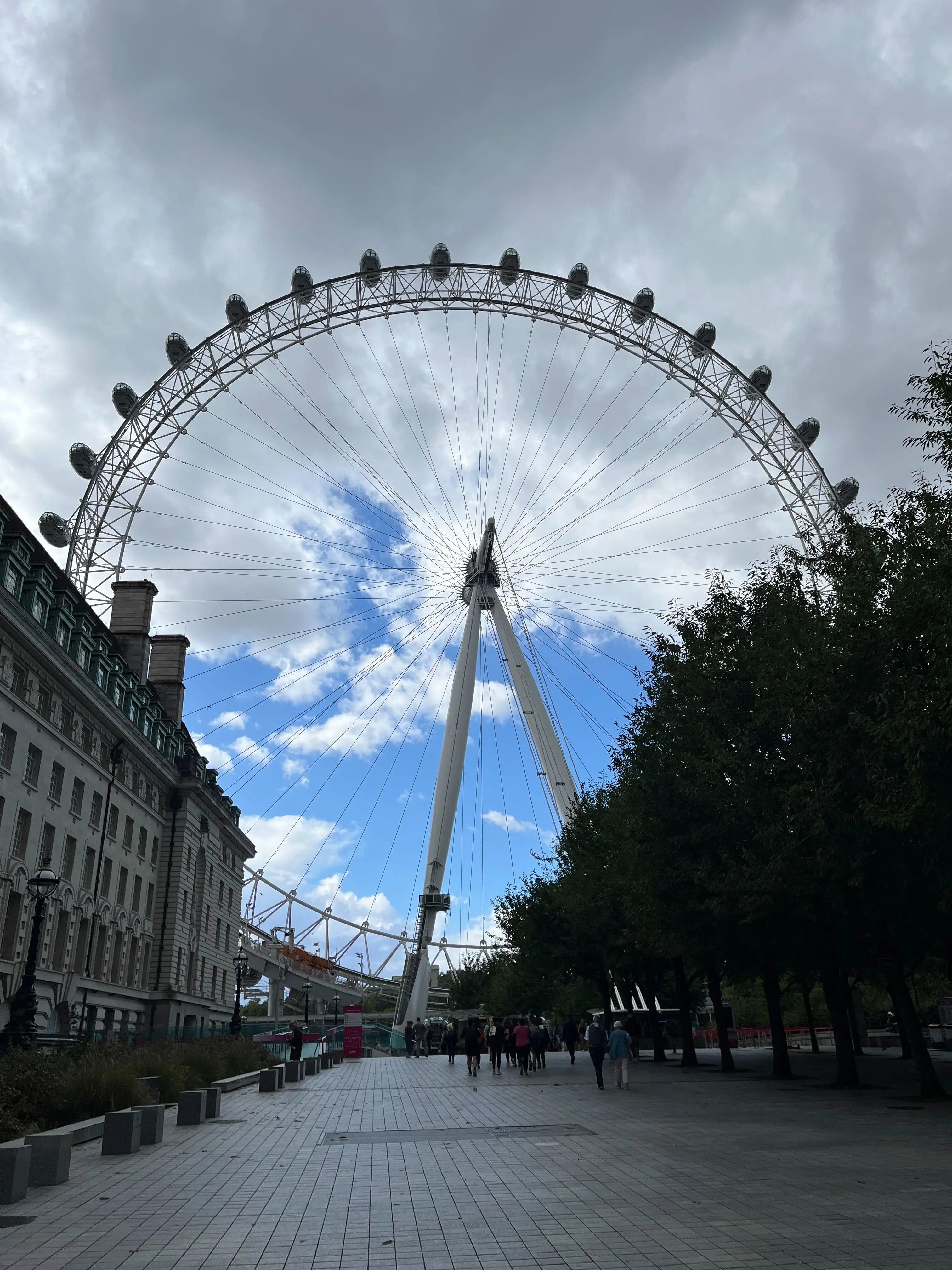
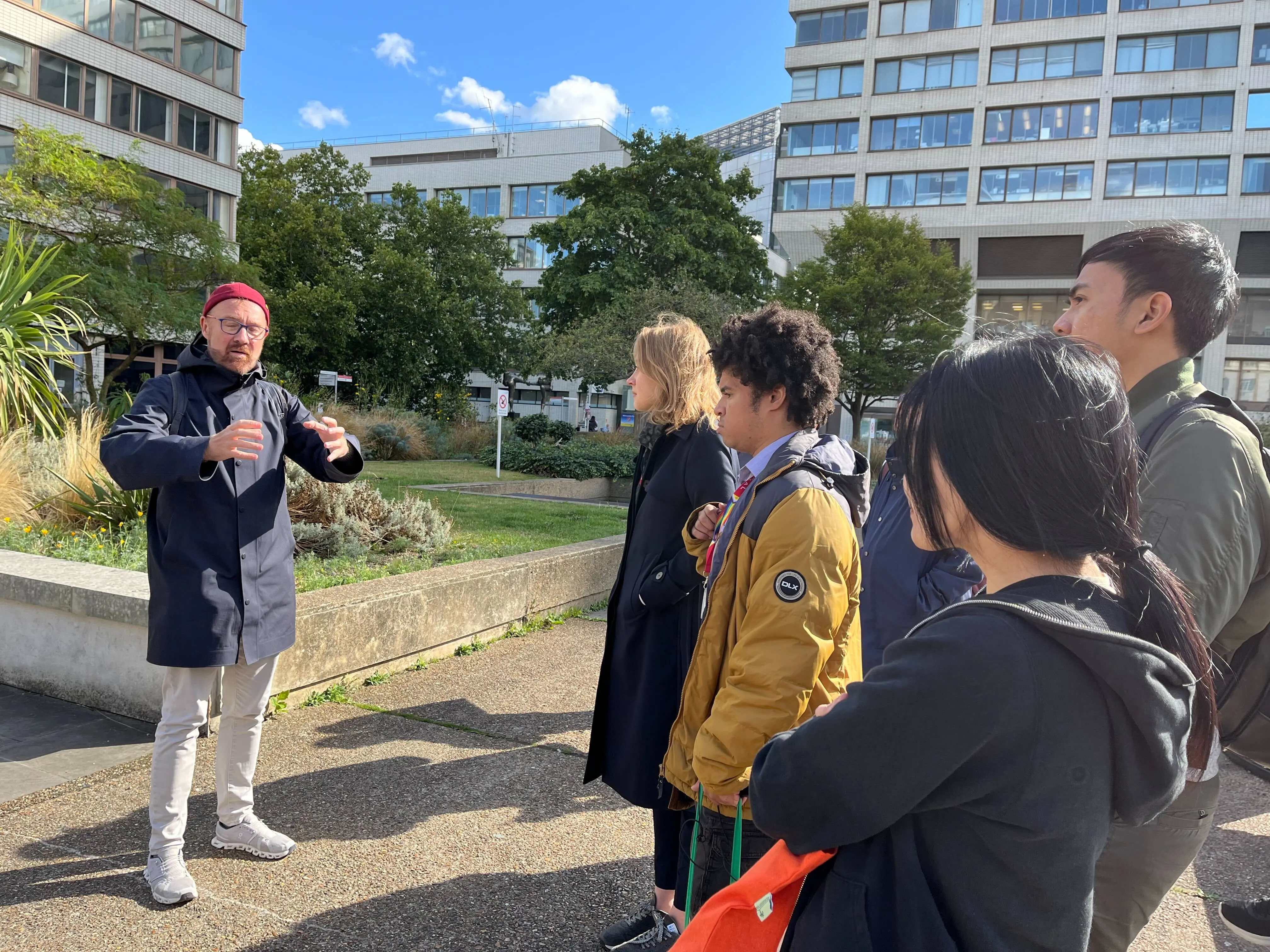
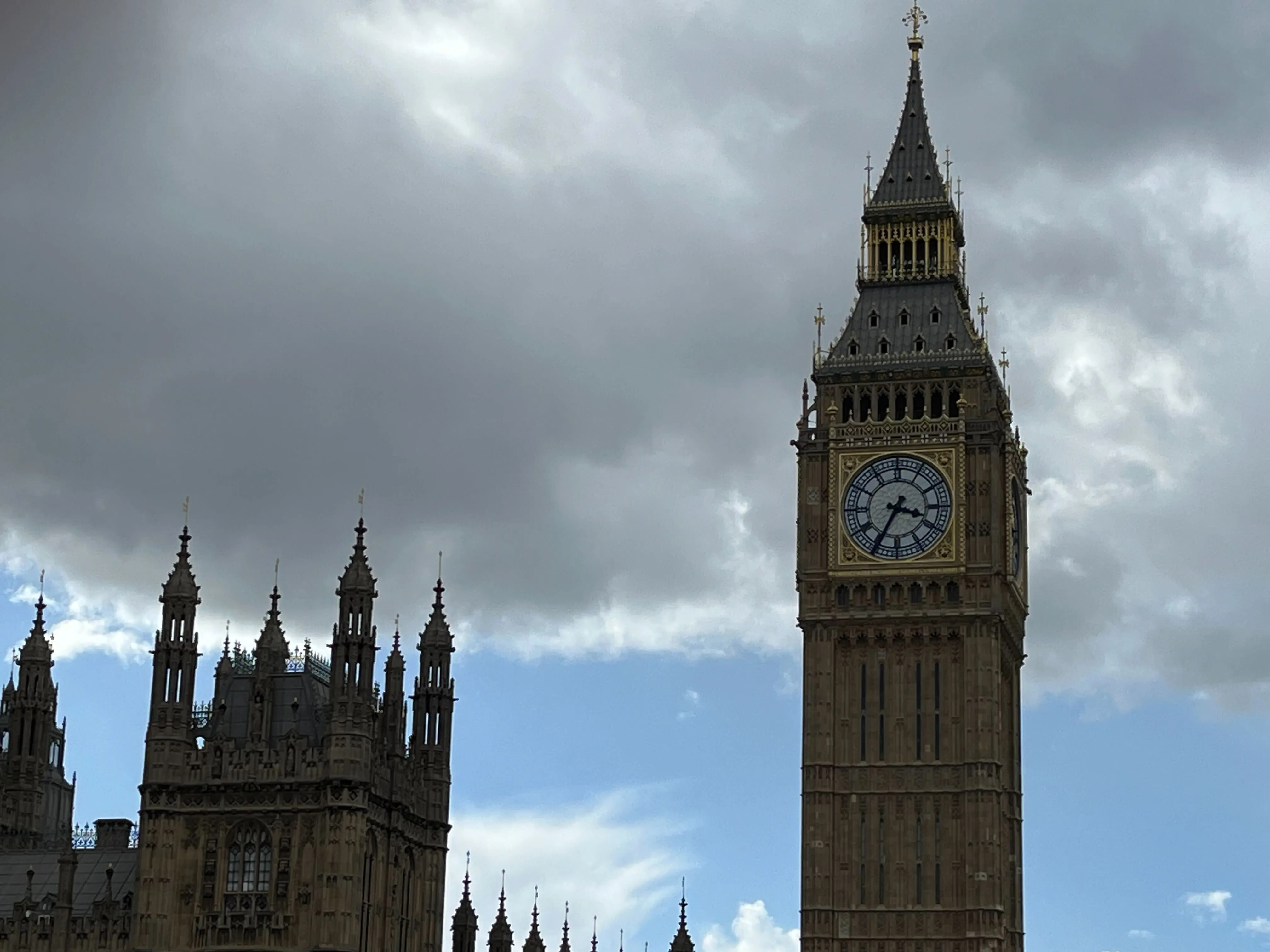
Day 4: Project Consultation and Poster Creation
While continuing their brainstorming from the previous day, all teams started actual work on their group projects on Day 4. Their task was to consolidate multiple discussions into a single project as a team. The diversity of team members led to varying opinions, and some discussions became heated. This made it hard to focus on a single topic, but everyone tried their best to listen to their teammates' opinions and contribute.
Next, there was an elevator pitch session in which two members from each team presented an outline of their project to a separate team. They took questions and advice, reconsidered their projects, and continued to discuss and prepare for their final presentations.
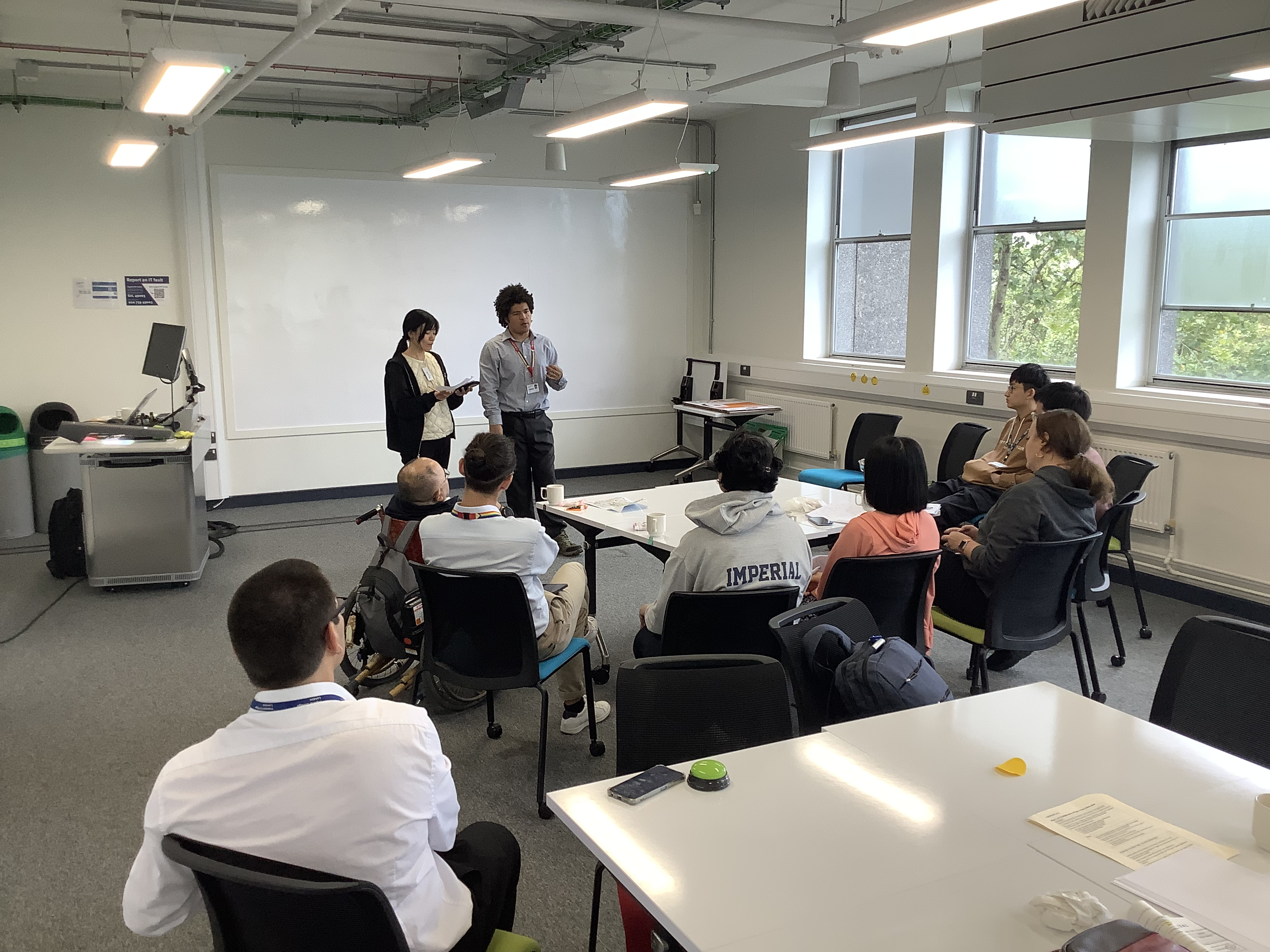
Day 5: Project Presentation Day
The final day was presentation day — the culmination of the program. Team members divided responsibilities to prepare the presentation posters, completing them using only colored pens and paper, before delivering their final five-minute presentations.
Professor Maggie Dallman, OBE, Vice President (International), Associate Provost (Academic Partnerships) and Professor Masao Takata, Sir Ivan Magill Chair in Anaesthetics at Imperial College London, both served as judges.
Filled with originality, the presentations revealed the value of the teams' extensive discussions on solving health and well-being issues.
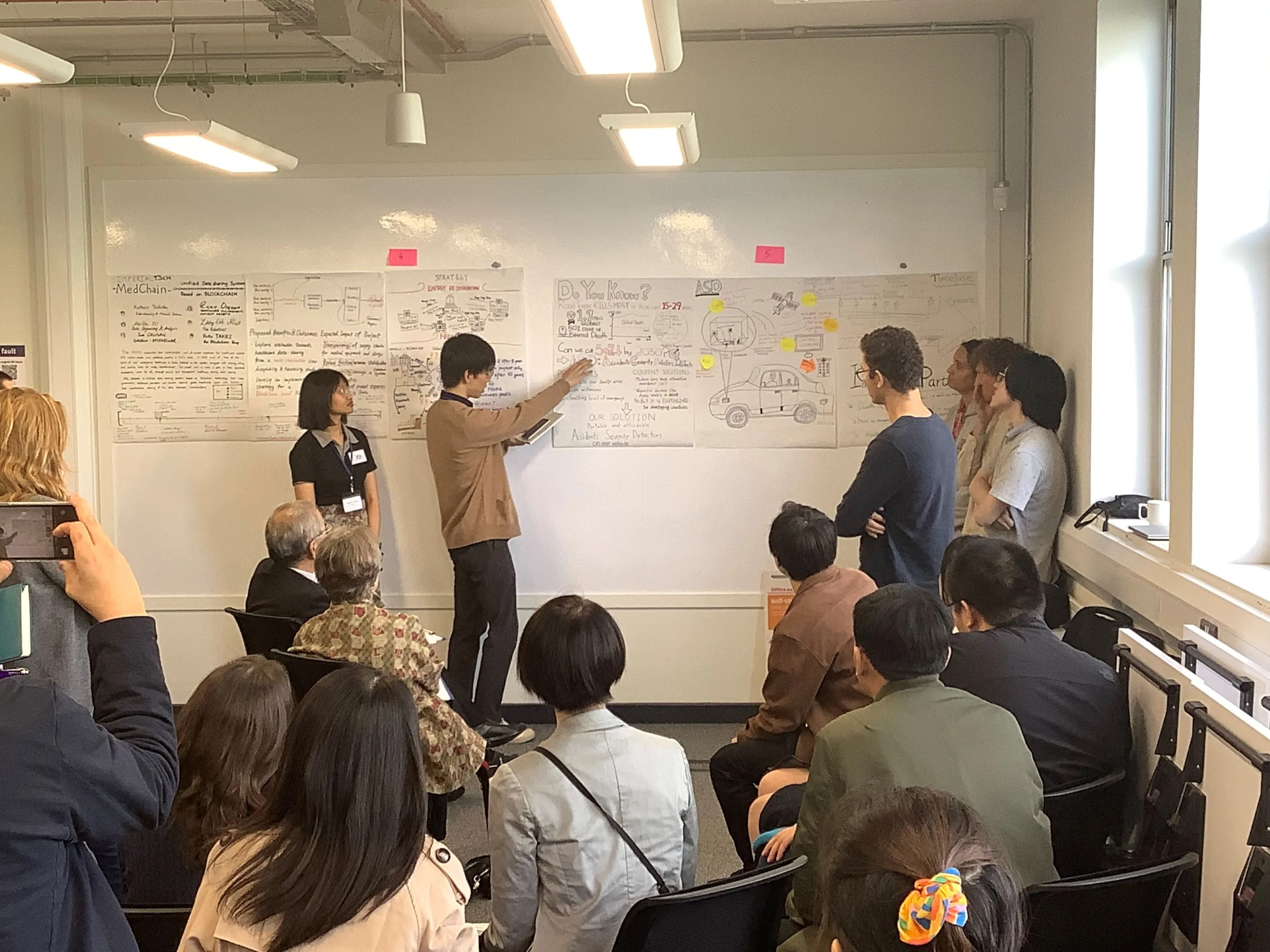
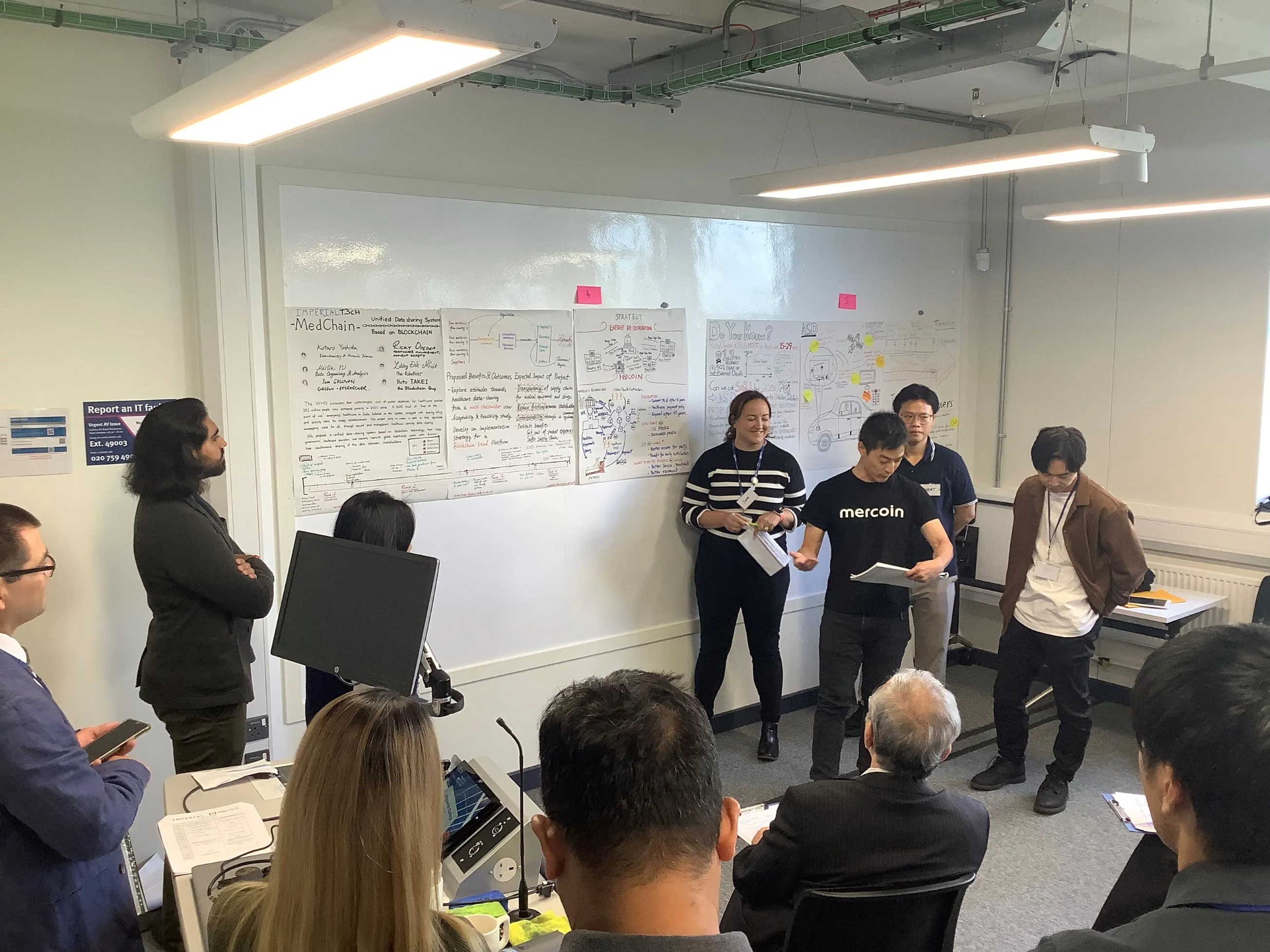
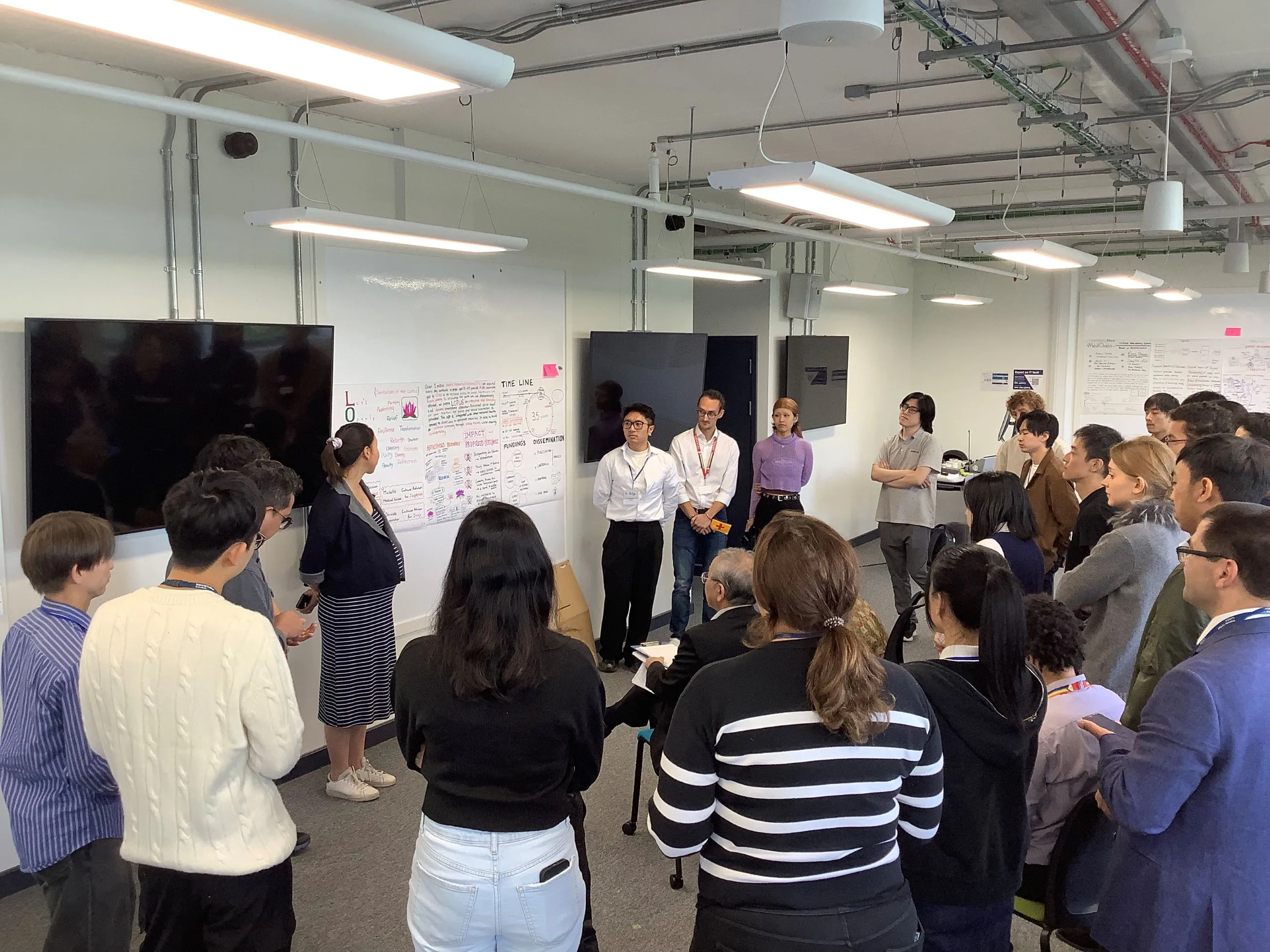
After all the teams had finished their presentations, the judges announced the Collaboration and Innovation/Creativity Awards. Team 2 won the Collaboration Award for their smart toilet with a health sensing function, and Team 1 won the Innovation/Creativity Award for their device that uses photocatalysis to eliminate bacteria and fungi in water, thereby eradicating waterborne diseases.
Awarded teams were given T-shirts from both universities, and all participants received certificates of completion.
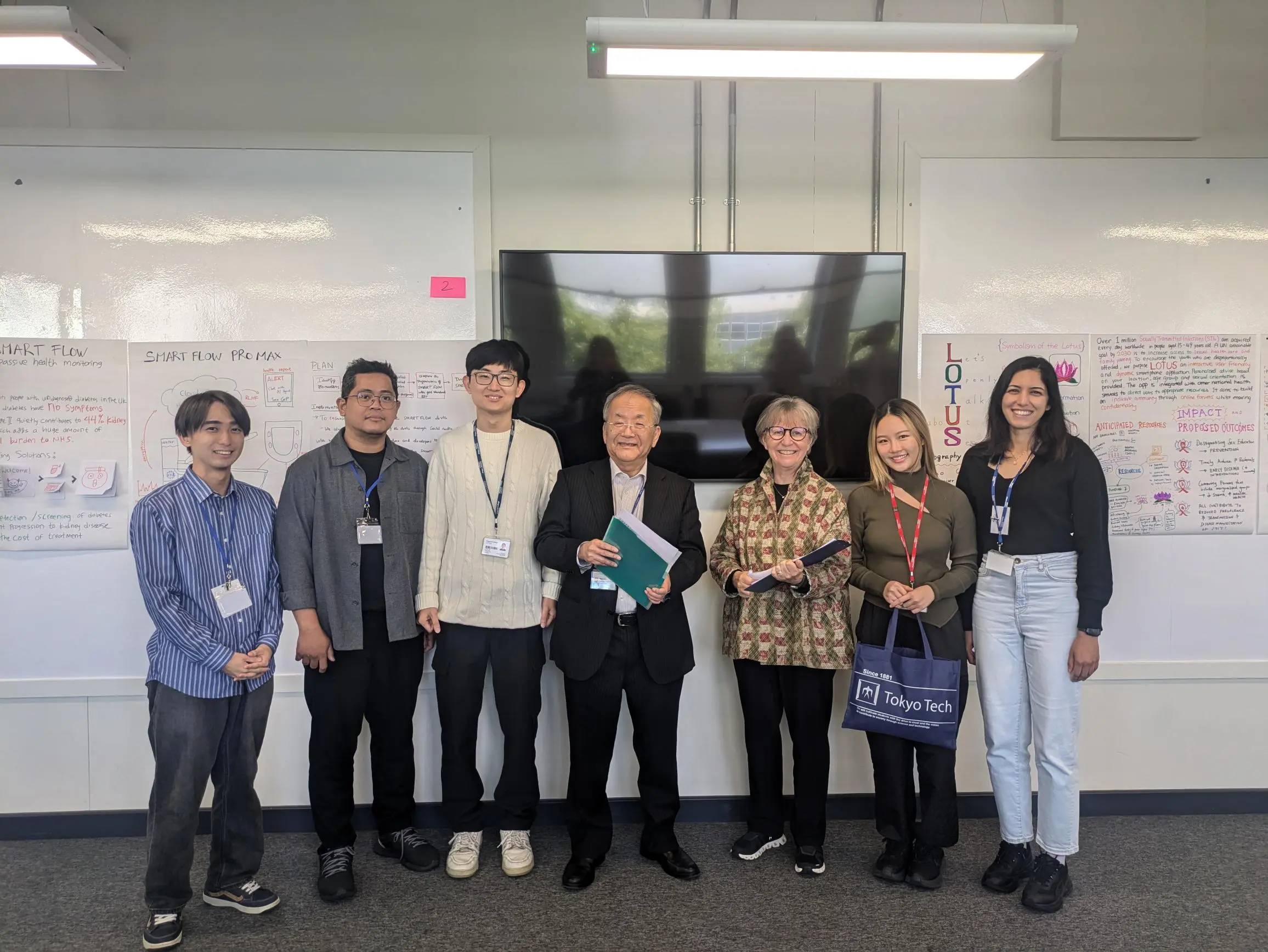
Taiki Abe, Wishnu Agung Baroto, Jinpei Han, Professor Takata, Vice President Dallman, Suchaya Mahuttanatan, Giselle Raisa D’Souza (from left to right)
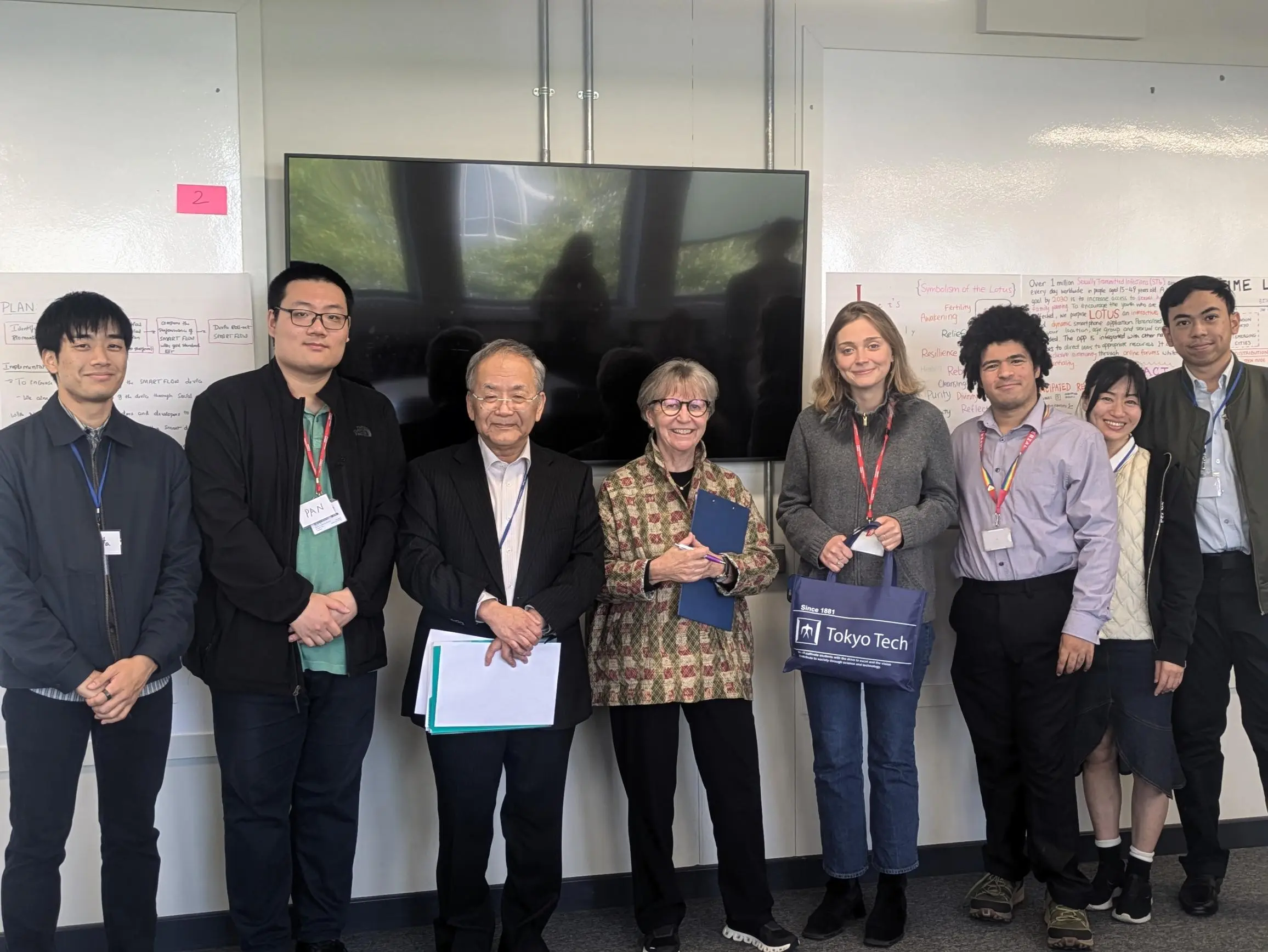
Sota Takagi, Zhiqiao Pan, Professor Takata, Vice President Dallman, Dominika Daremiak,
William Rodriguez Kazeem, Miyuki Suzuki, Ares Arrad (from left to right)
In the afternoon, a farewell tea party was held. Naoto Kobayashi, Director of the London Centre of Japan Society for the Promotion of Science (JSPS), addressed the meeting at the beginning, and Yui Miyaura, International Program Associate, gave an overview of JSPS's international fellowships for doctoral students conducting research in Japan.
Representatives from each team then congratulated their teammates for their hard work and thanked the team coaches and staff. During the party, the participants reflected on the five-day program, looking at photos compiled into slides. They were surprised at how quickly time had passed, shared memories with the friends they had spent the past five days together with, and hoped to see each other again.
Students from both universities had deepened their relationships with one another through activities such as going out for dinner and sightseeing together in London during their free time. The program closed with the hope that the newly-established network of students will lead to further research exchanges in the future.
Tokyo Tech participants are scheduled to stay in Imperial’s laboratory for one to three months until March 2025 to conduct field research and study under the guidance of their host faculty members.
Other - Experience the UK's inclusive approach
In relation to this year’s GFP theme of well-being, Associate Professor Hironao Kaneko experienced getting in and out of an accessible taxi in order to better understand the situation in the UK, where efforts are being made to promote an inclusive society in which everyone can live easily.
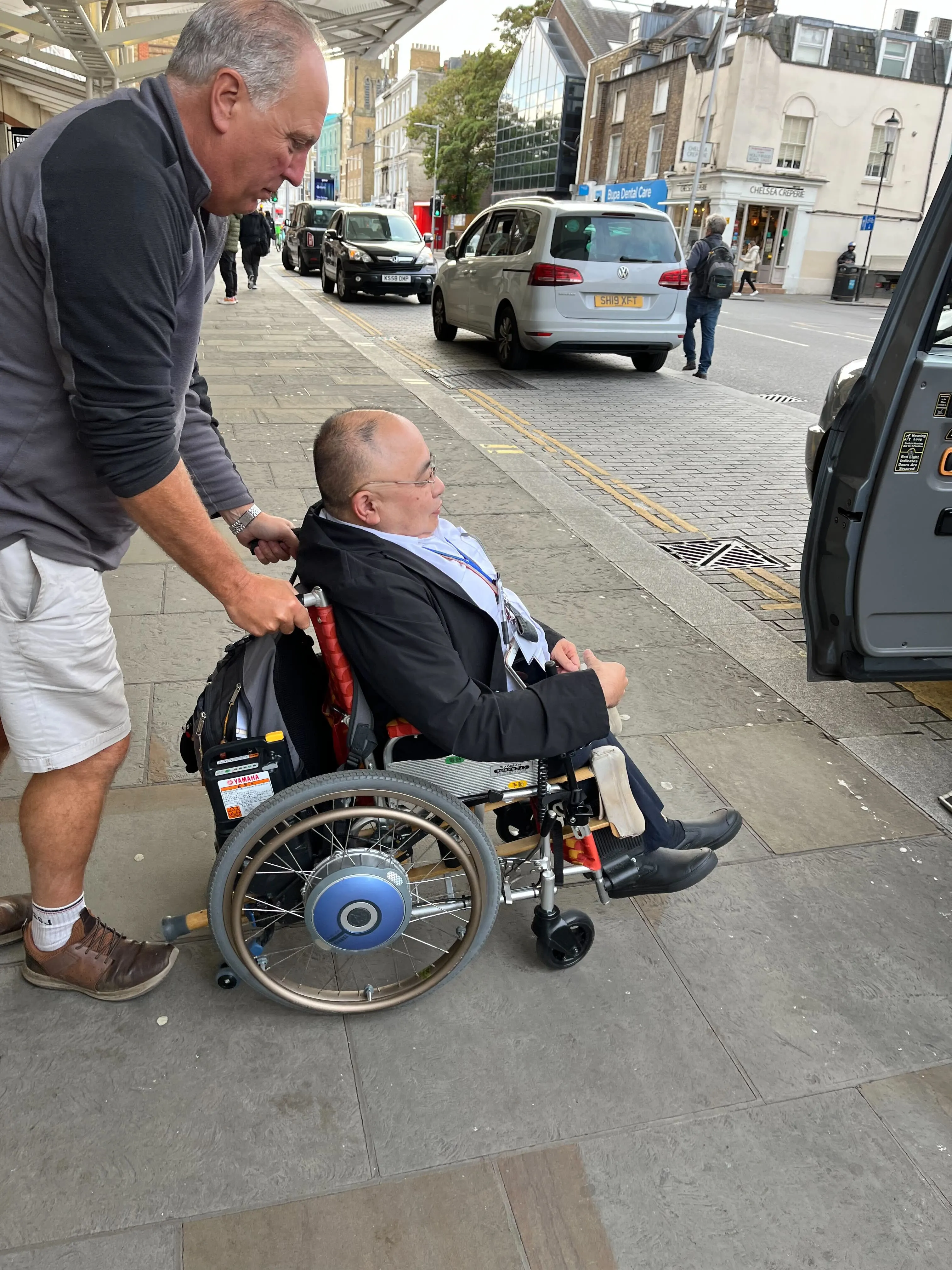
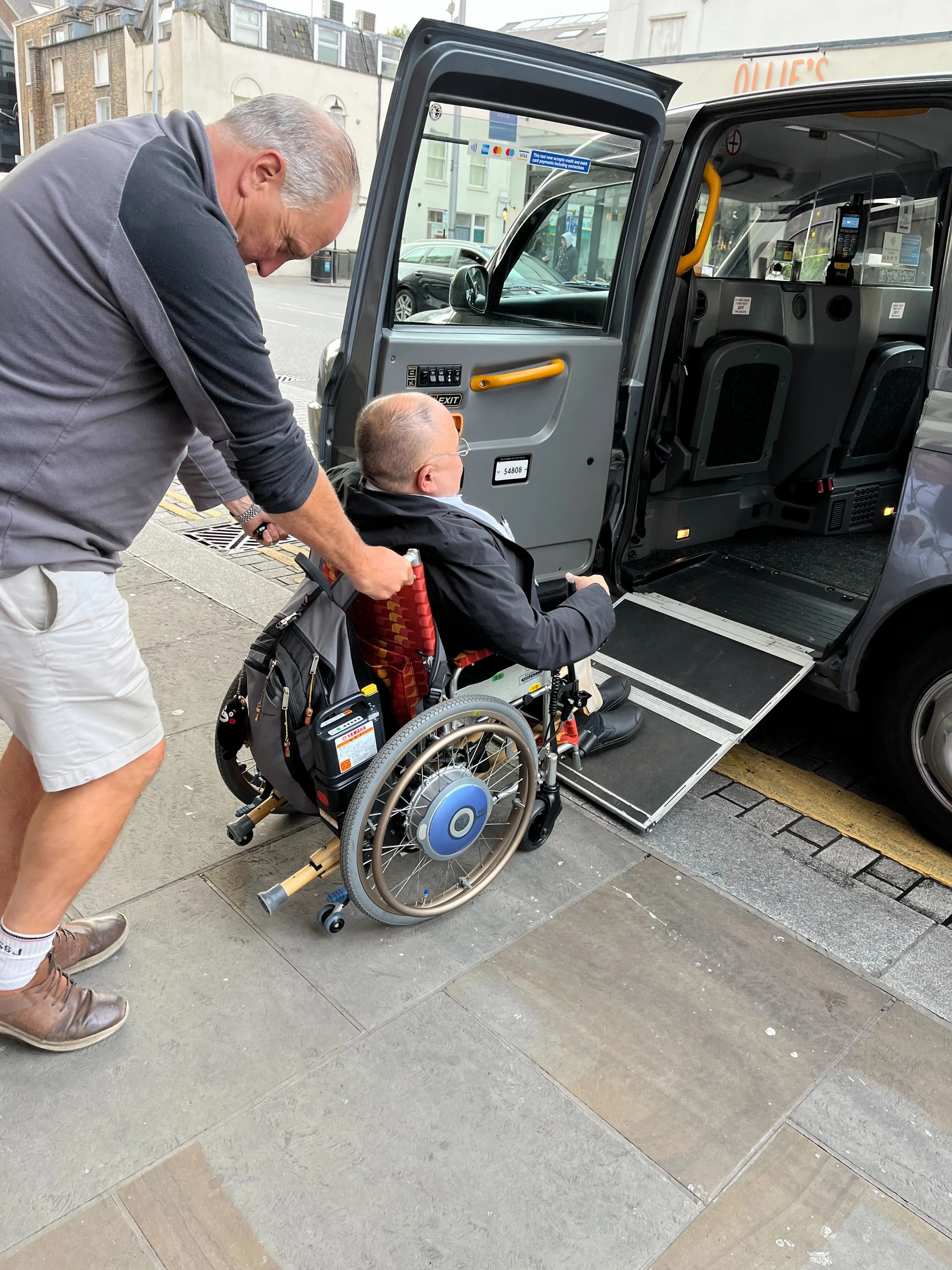
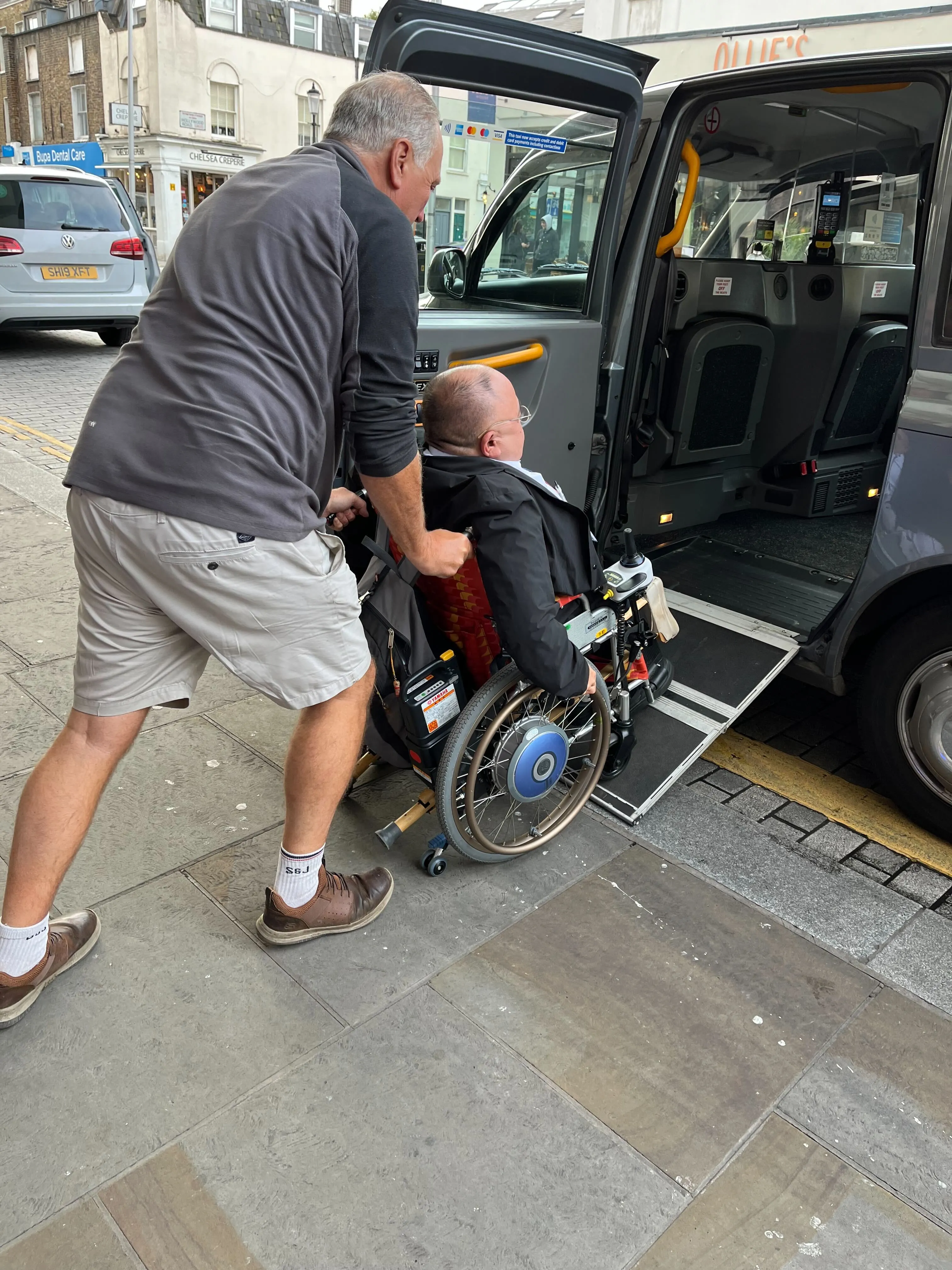
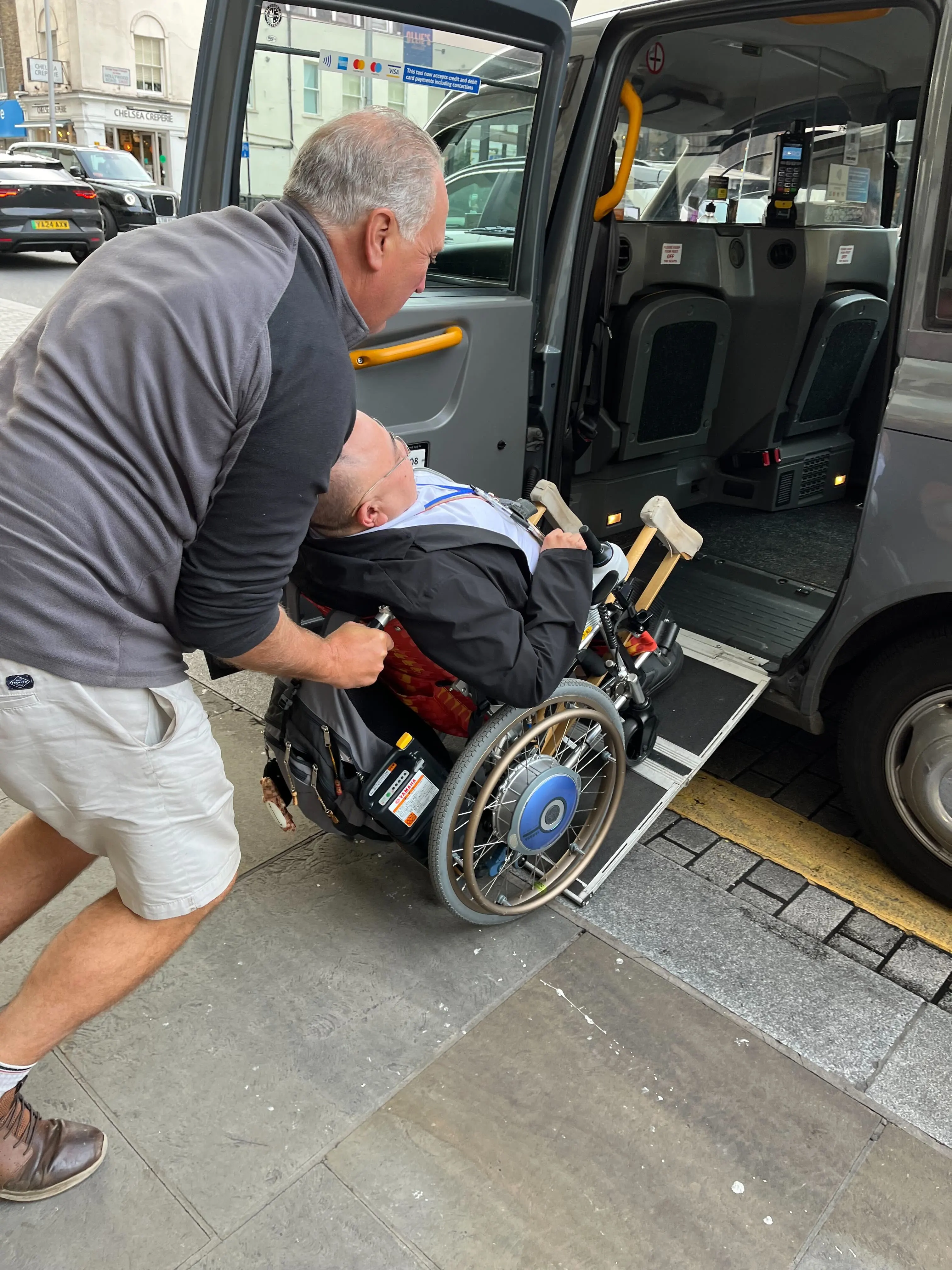
*Tokyo Medical and Dental University and Tokyo Institute of Technology (Tokyo Tech) merged on October 1, 2024, to form Institute of Science Tokyo (Science Tokyo).
**The International Student Exchange Division became the Global Education Division after the inauguration of Institute of Science Tokyo in October 2024.